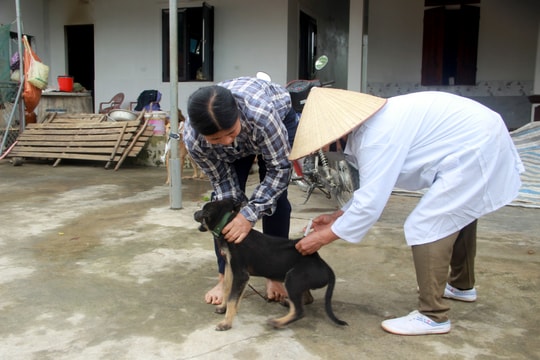Lacking veterinary staff, many localities face difficulties in implementing vaccination.
(Baonghean.vn) - Localities in Nghe An are implementing vaccinations to prevent epidemics for livestock. However, many localities are facing difficulties due to the lack of veterinary staff, many communes have to hire people to implement vaccinations on time.
Solutions when the locality does not have veterinary staff
Dien Truong Commune, Dien Chau District is a locality that although does not have many livestock, when implementingvaccination for livestockThe commune could not help but worry, because the whole commune only had one part-time veterinary officer, so it was difficult to complete the vaccination plan on schedule.
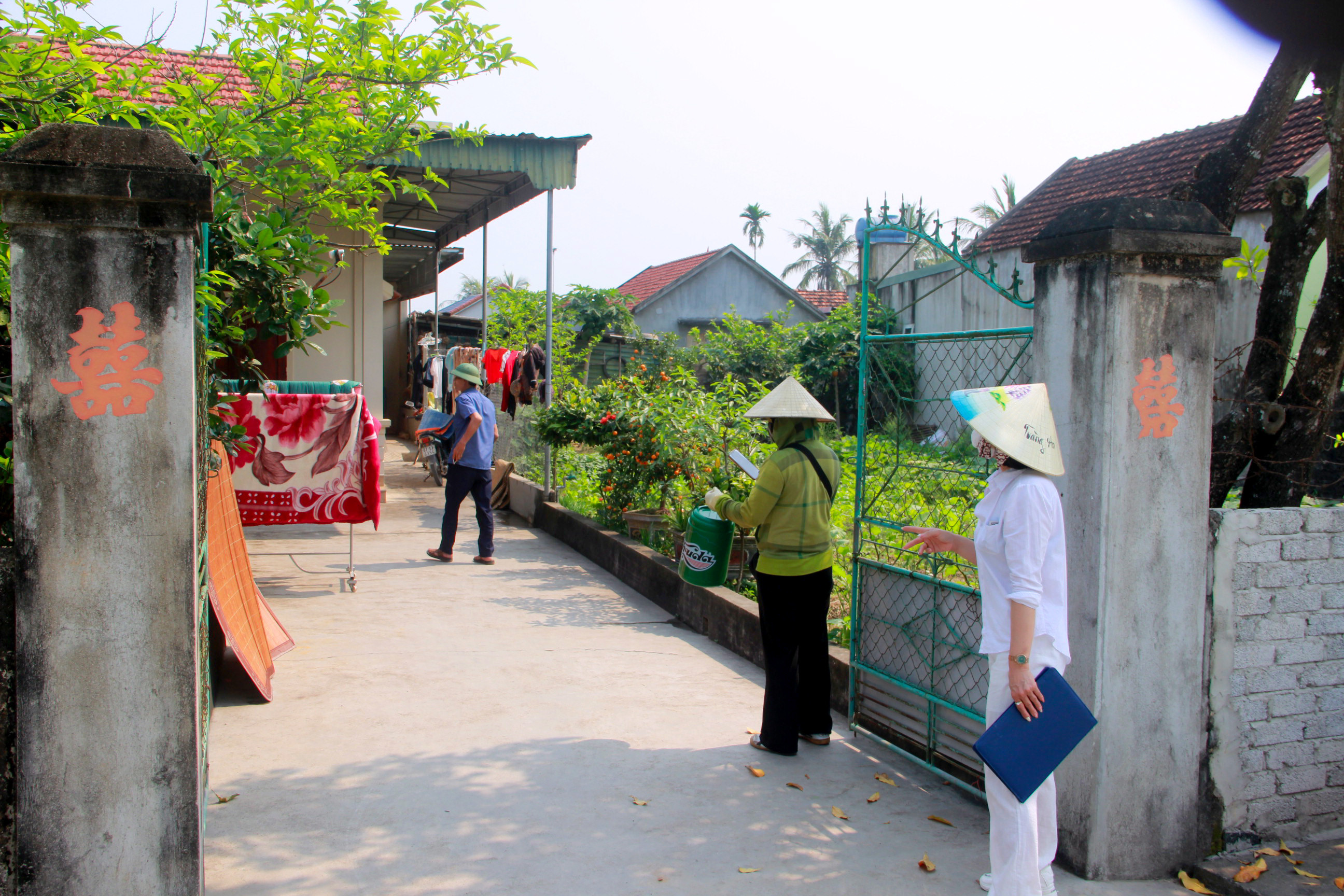
Ms. Dinh Thanh Nga - a veterinary officer of Dien Truong commune, Dien Chau district said: Because the vaccination schedule is only 1 month, 1 veterinary officer cannot vaccinate all the animals on schedule, so they have to hire more people. However, finding people is very difficult, because they must have both expertise and skills and have money to pay daily wages, while the local budget is limited.
In addition, there were many problems during the vaccination process, such as although the commune and hamlet had announced on the loudspeaker system for people to lock up their pets on a specific vaccination day, some households had not done so. This led to the vaccination team arriving at their homes and having to chase their pets, which was very time-consuming. Some households were not even at home when they came for vaccination, forcing them to make a list to be vaccinated later. This difficulty made the vaccination process both slow and potentially dangerous if the pets had pathogens in their bodies.
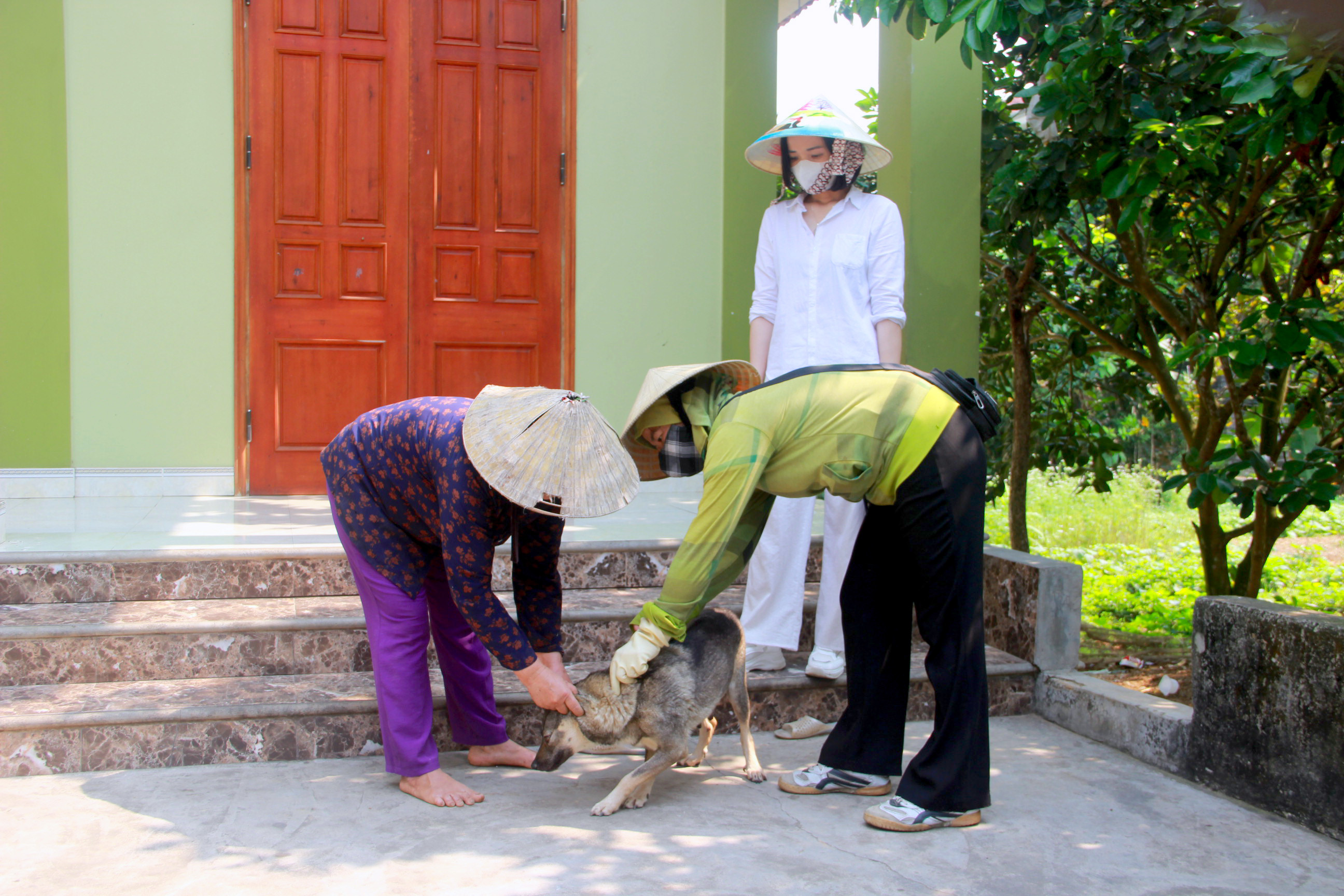
According to Mr. Chu Van Dat - Vice Chairman of Dien Truong Commune People's Committee, the solution for the locality to organize vaccination according to plan is to hire a veterinarian in Dien Hung Commune to support the process of vaccination for the Spring crop. Accordingly, the salary paid to the veterinarian is 300,000 VND/day, that amount is deducted from the income of the household owners after vaccinating their animals, if not enough, the commune will deduct the budget to pay.
"Dien Truong currently has 288 buffaloes, cows and 610 dogs. The commune's plan is to vaccinate 80% of the total dog herd and 20% of the total buffaloes and cows. The reason for the low vaccination rate of buffaloes and cows is that people here often buy buffaloes and cows to care for for a few days and then sell them, so they do not vaccinate them," said Mr. Chu Van Dat.
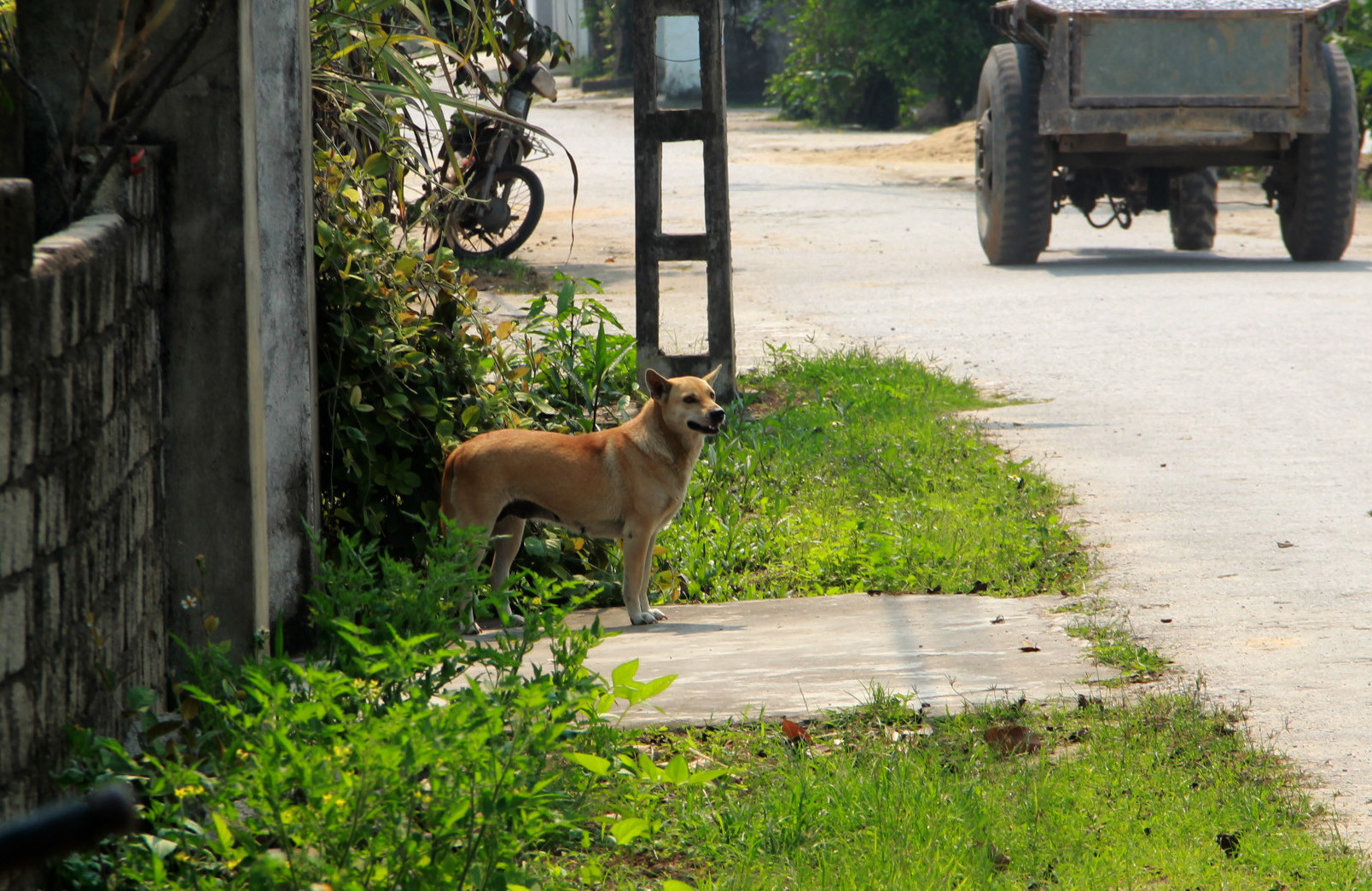
Dien Ky commune is the only locality in Dien Chau district that does not havetitle of commune veterinary officer. Mr. Dau Xuan Truong - Chairman of the Commune People's Committee said that although the locality does not have a veterinary officer position, every year the commune still proactively hires veterinary staff from other localities to vaccinate livestock according to plan. Because the whole commune currently has only 200 dogs, 20 buffaloes, cows and 10 pigs, it only takes 4-5 days to hire a veterinarian to vaccinate this Spring crop.
"However, when the commune does not have a veterinary officer, the annual work of preventing and fighting epidemics for livestock faces many difficulties. Because when people report sick livestock, the commune must contact the District Agricultural Service Center to check and identify the epidemic, leading to delays in disease prevention and control work," Mr. Dau Xuan Truong shared.
Localities need to soon add veterinary staff positions.
According to Mr. Le The Hieu - Head of the Department of Agriculture and Rural Development of Dien Chau district, on March 13, the district deployed a livestock vaccination plan to localities and from March 15, all communes in the district organized vaccination. Dien Chau district strives to vaccinate 100% of the total dog herd of nearly 22,000 dogs against rabies this spring and vaccinate 70 - 80% of the total herd of buffalo, cows and pigs against foot-and-mouth disease and anthrax.
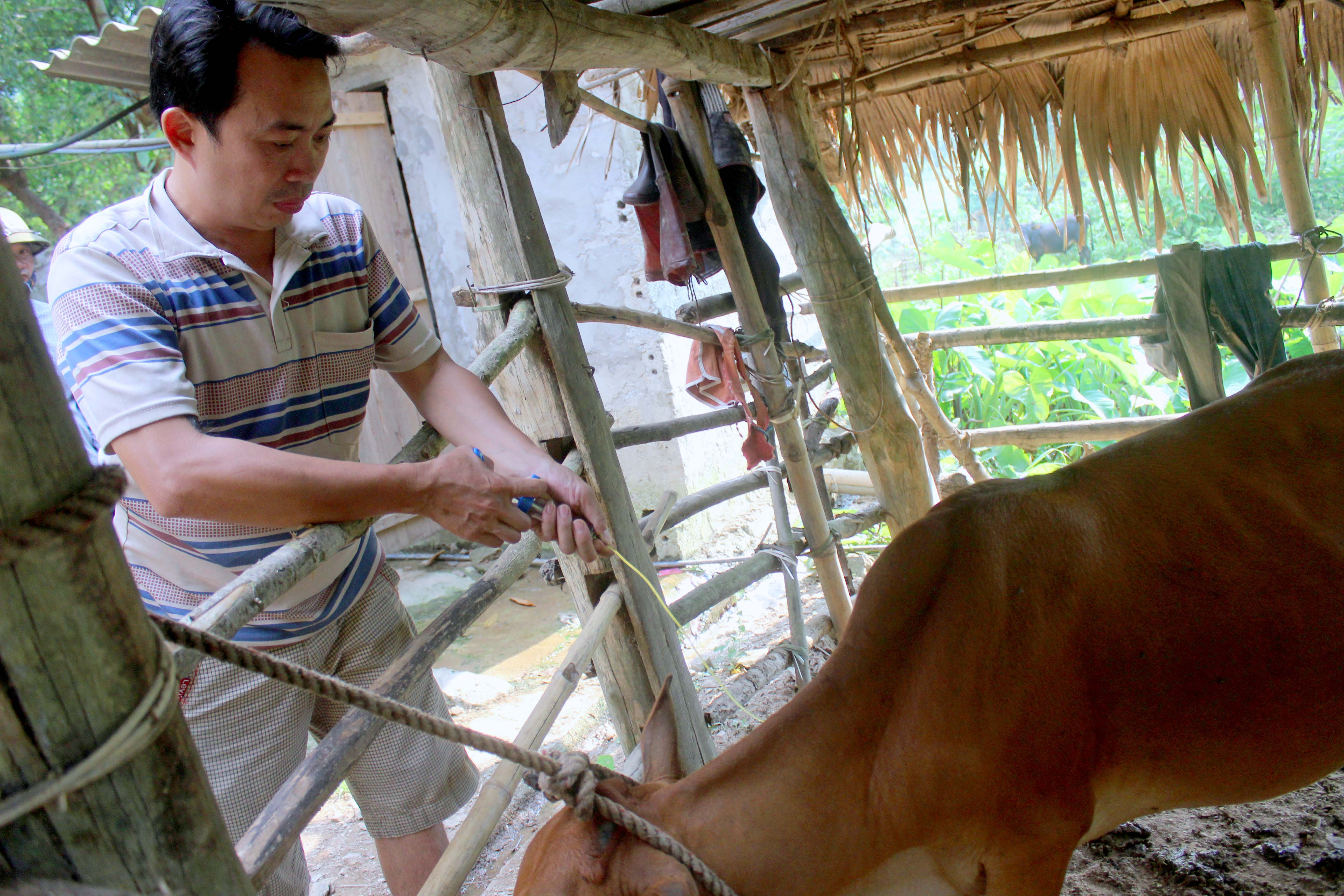
In mountainous districts, vaccination for livestock is more difficult, although the communes have veterinary staff. Mr. Pham Hoang Mai - Director of the Agricultural Service Center of Que Phong district said that the biggest difficulty in implementing vaccination is the sparse population, the distance between villages is too far, and people also graze buffalo and cows. Moreover, the provision of vaccines is often delayed.
Yen Thanh is the district with the highest number of communes without veterinary staff. Mr. Nguyen Trong Huong - Director of the District Agricultural Service Center said that currently, the district is strongly directing the spring vaccination work for livestock, so communes without veterinary staff must hire veterinary professionals in the area to organize vaccination. At the same time, implementing the district's direction, localities are currently recruiting veterinary staff according to Decree 33/2023 of the Government.
Mr. Dang Van Minh - Head of the Provincial Department of Animal Husbandry and Veterinary Medicine said: The situation of communes not having veterinary staff still exists in some localities, when implementing vaccination for livestock, there are difficulties and no proactive human resources.
According to Mr. Minh, for communes that do not have veterinary staff positions, according to Decree No. 33/2023/ND-CP, districts need to apply soon to supplement. This new Decree does not stipulate that commune-level veterinary staff must not be over 40 years old as before, so localities will have more advantages in receiving application files.
Clause 1, Article 36 of Decree 33/2023/ND-CP of the Government on commune-level cadres, civil servants and part-time workers at commune level, in villages and residential groups, the standard is Vietnamese citizens, 18 years of age or older; have full civil act capacity and good health to perform assigned tasks.
Have good political and moral qualities; be exemplary in implementing the Party's guidelines and policies, the State's policies and laws; have the capacity to organize and mobilize local people to effectively implement the Party's guidelines and policies, the State's policies and laws.
Not being under criminal prosecution, serving a prison sentence, non-custodial reform, probation, being subject to educational measures at the commune level or being sent to a medical facility or educational facility.
General education level: High school graduate.
Professional qualification: High school graduate or higher.

